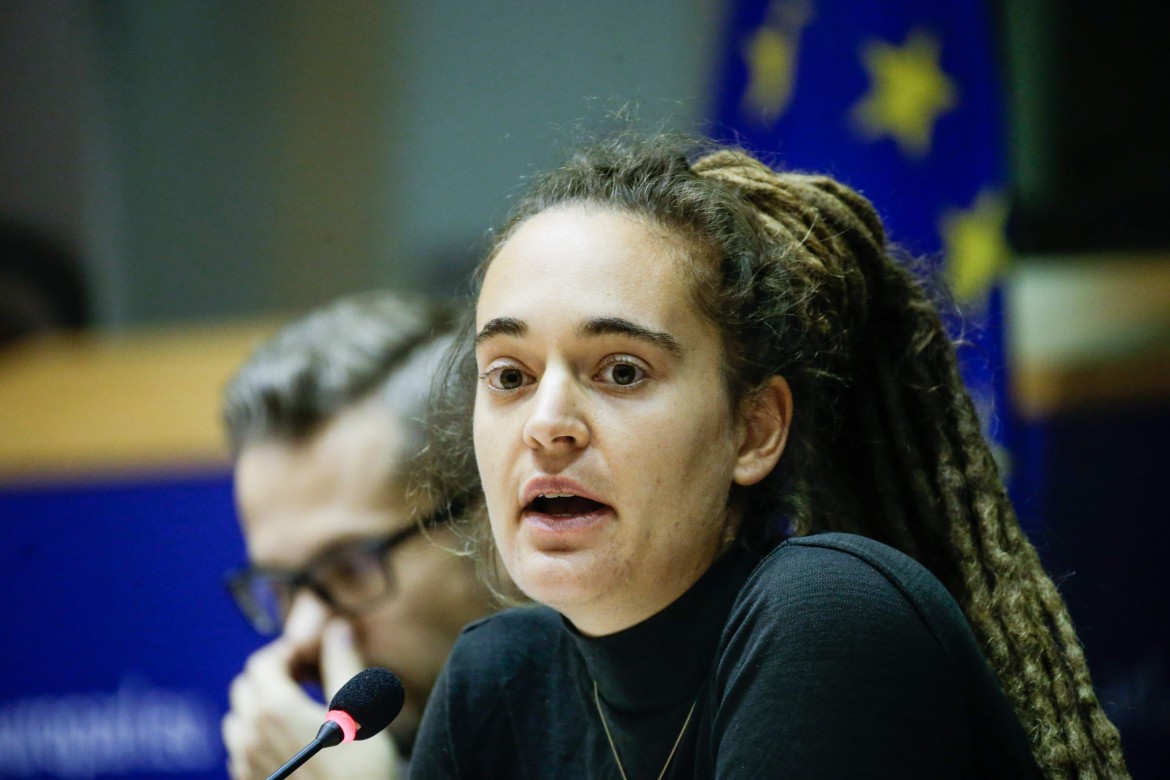Analysis
Carola Rackete: When I asked for help, Europe turned away
The captain of the Sea Watch 3 received a standing ovation in European Parliament. But Carola Rackete holds them accountable: ‘Where were you when we asked for help through all diplomatic and official channels?’

On the fifth anniversary of the Lampedusa tragedy, the captain of the Sea Watch 3, Carola Rackete, spoke before the Committee on Civil Liberties, Justice and Home Affairs of the European Parliament. The MEPs gave her a standing ovation, a sign of political recognition of her decision to carry the 53 migrants trapped on board her ship to safety, despite the opposition of the then-Interior Minister Salvini, which was in violation of the fundamental tenets of maritime law.
This time as well, she sent the right wing into a frenzy of rage, as if they never quite managed to get over the resounding political blow she scored against their strategy. Salvini was back trying to rile up his declining social media following on Twitter with a call to “throw her in jail.” Even more, he denounced her speech as a supposed affront by the European Parliament against “sovereignty” (presumably his own).
One of the most striking aspects of both her speech before the Committee and her subsequent meeting with the press was that Rackete, as always, avoided making her clash with Salvini and the Italian state personal. We got a glimpse of her intelligent approach recently in a flawless television interview in which the interviewer tried several times to get her to fall into that trap.
Her plainspoken and straightforward style, with which an entire generation (and not only) of political activists throughout Europe can identify, aims at the substance of the political struggle, not at the human actors who happen to be playing roles in a media-friendly drama. Rackete stressed that immigration policy doesn’t depend only on Italy, but on the whole of the European Union, which is “responsible” for it.
Her position on Libya—the country from which the migrants had fled—is also crystal clear. It is a country where thousands of people are held captive in concentration camps, while it is given political cover by agreements signed by Italy. Similarly blunt were her words about the situation of the 53 people sequestered aboard the Sea Watch: the ship was treated as if it was “a ship carrying the plague rather than a humanitarian ship with vulnerable, exhausted people on board.”
In Italy, for the similar case of the Diciotti vessel, the judiciary asked the Parliament to allow the prosecution of Salvini for kidnapping. The request was rejected by the Parliament, including the Five Stars who were all too willing to make their “ally” happy. The current Prime Minister Conte twisted himself into knots to come up with justifications for the actions of his minister. This is the political truth that made Rackete’s acts, and her testimony Thursday, as irreverent as it was powerful.
Equally powerful were the words she addressed to the same MEPs who applauded her: “Where were you when we asked for help through all diplomatic and official channels?” she asked. She recounted that the only reply she received was from Tripoli, where she couldn’t go. She stressed that she had to enter the port of Lampedusa, not as an act of provocation, as some claimed, but for reasons of necessity, as she could no longer take responsibility for the well-being of those on board.
Her personal case has became the occasion for a comprehensive reflection on the political situation. Salvini merely amplified to the extreme what is still the basic orientation shared by all European governments, even those of the “left.” For instance, Rackete pointed to “Socialist” Spain, which is issuing enormous fines to NGOs, very similar to the Lega’s “Security Decree 2.0.”
Rackete said it was shameful to see this attitude from the EU, “the cradle of human rights,” criticizing the ill-advised proposal by the new EU Commission President Ursula Von Der Leyen to create the portfolio of “protecting the European way of life” for one of her commissioners. If Europe is truly the “cradle of human rights,” it should stop criminalizing the NGOs, and the very idea of solidarity as such. Rackete stressed that she understands this term from a very wide perspective, given her background as an environmental activist. She first became involved in environmental action in 2011, when she captained an icebreaker on a mission to the North Pole organized by a German research institute. For her, solidarity is a policy that should encompass both human beings and their planet.
She added that she did not rescue “refugees,” but rather “human beings.” Her goal, and that of her companions, invited to Brussels by the Greens and the GUE, is to demand a real reform of the Dublin Treaty and the setting up of humanitarian corridors, as well as a reform of the security policies, both on land and on sea.
Originally published at https://ilmanifesto.it/carola-rackete-accusa-leuropa-non-cera-quando-chiedevo-aiuto/ on 2019-10-04
